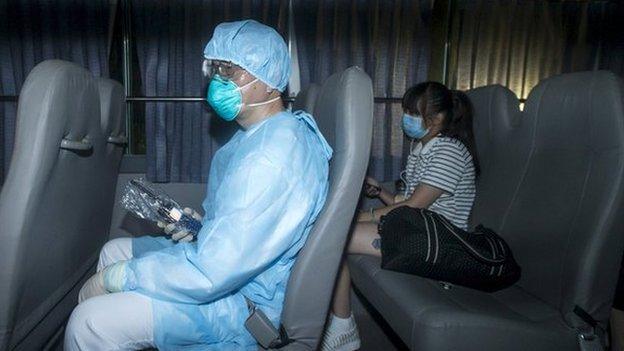Sixth Mers death in South Korea amid sharp rises in cases
- Published
Steven Evans reports: "It remains to be seen if tighter controls can stop Mers morphing in to a full-scale emergency"
A sixth person has died after contracting Middle East Respiratory Syndrome (Mers) in South Korea, amid a sharp rise in infections.
More than 23 people were confirmed to have contracted the disease on Sunday, bringing the total to 87, health officials say.
It is the biggest outbreak of Mers outside the Middle East.
About 2,300 people have been placed under quarantine and nearly 1,900 schools have been closed.
On Monday morning, a man in his 80s became the latest person to die of Mers-related illness in Daejeon, about 140km (87 miles) south of Seoul.
On Saturday a 75-year-old man died after contracting the virus. He had been in a Seoul hospital alongside other sufferers when he became ill.

Middle East Respiratory Syndrome (Mers)
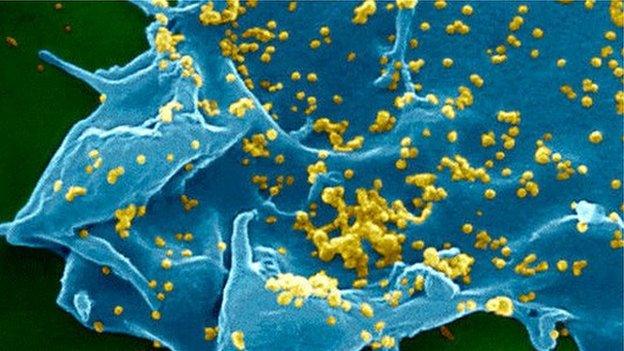
The first fatality from Mers was recorded in June 2012 in Saudi Arabia
Mers is caused by a new type of coronavirus, a type of virus which includes the common cold and Sars (severe acute respiratory syndrome).
First cases emerged in the Middle East in 2012, and the first death in Saudi Arabia in June that year.
Patients have a fever, cough and breathing difficulties, but Mers can also cause pneumonia and kidney failure.
Approximately 36% of reported patients with Mers have died - there is no vaccine or specific treatment

Close contact
Seventeen of the 23 new cases were infected at the Samsung Medical Centre in Seoul, the health ministry said.
All the infections so far have been confined to hospitals with transmission occurring between patients, staff and their families in close contact.
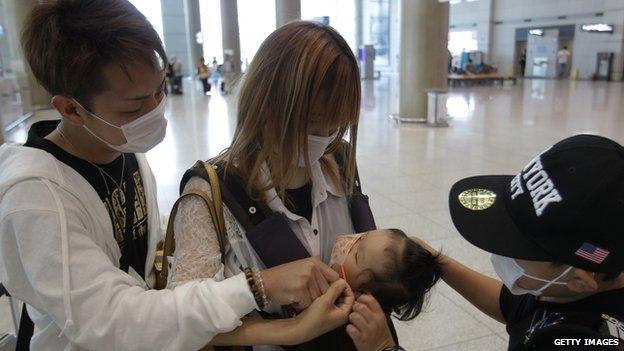
Members of the public have been wearing masks to protect themselves
Health officials have released the names of the 24 hospitals - mainly in Seoul and the province of Gyeonggi - involved in the outbreak.
The first Mers case in South Korea was a man who became infected during a business trip to Saudi Arabia, where the disease was first identified three years ago.
Medical authorities have been criticised for the way they have handled the outbreak.
Seoul Mayor Park Won-soon accused central government of not providing enough information to citizens about the virus. But Health Minister Moon Hyung-pyo rejected the claim, saying such comments risked increasing public concern.
- Published9 June 2015
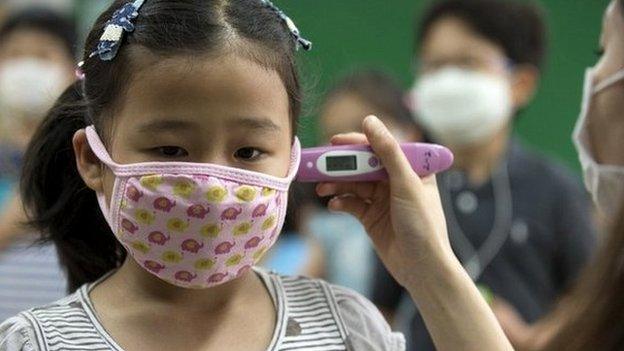
- Published2 July 2015
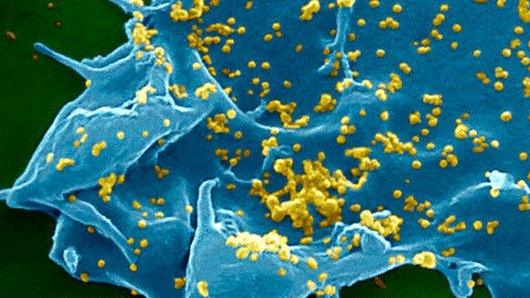
- Published4 June 2015
